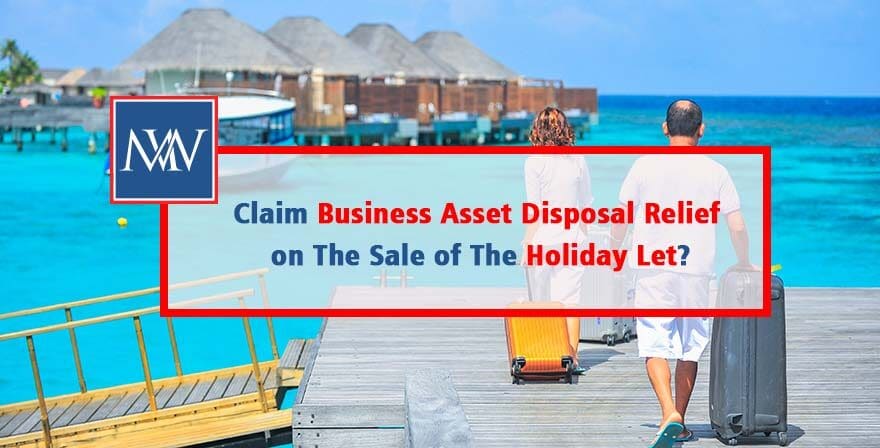
Can You Claim Business Asset Disposal Relief on The Sale of The Holiday Let?
Furnished holiday lets benefit from a number of tax advantages which are not available to landlords of residential lets. One of the main advantages is the opportunity to benefit from Business Asset Disposal relief (BADR) on the sale of the property, paying capital gains tax at only 10% above the annual exempt amount rather than at 18% or 28% on the sale of the buy-to-let. Individuals can benefit from BADR on gains up to the lifetime limit of £1 million.
A let must meet certain conditions re availability and letting to qualify as a furnished holiday let for tax purposes.
Nature of the relief
Business Asset Disposal Relief was previously known as Entrepreneurs’ relief. It is available on the disposal of all or part of the business. The commercial letting of furnished holiday lettings, which for certain capital gains tax purposes, including BADR purposes, is treated as a trade, falls within the scope of the relief. Furnished holiday lets qualify for the relief if the let is in the UK or the EEA, but not elsewhere in the world.
Qualifying disposal
The relief is available for a disposal of the whole or part of the business, and for a disposal of the assets used for the purposes of a business that has now ceased. Where the business is operated as a company, relief is available for the disposal of the shares.
In the case where an individual has one property that is let as a holiday let and decides to stop letting and sell the property, relief will be available where:
- the property was used as an FHL at the time that the FHL business ceased;
- the business was owned by the individual making the disposal for a period of two years immediately prior to the cessation of the business; and
- the disposal takes place within three years of the cessation.
The rules allow the landlord three years to sell the property once the FHL business ceases without losing the relief.
Example
Billy has a cottage in Suffolk that he lets as a holiday let. The let meets the conditions for a furnished holiday let. The cottage was purchased as a holiday let in 2010. Billy ceases letting it in May 2020, putting it up for sale. The property is sold in November 2020, realising a gain of £120,000.
The conditions for BADR are met. Assuming Billy has his annual exemption available and has not used up his lifetime allowance of £1 million, he will pay capital gains tax £10,770 on the chargeable gain of £107,700 ((£120,000 – £12,300) @ 10%).
If the property had been a residential let and assuming Billy is a higher rate taxpayer, the capital gains tax bill would have been £30,156 (£107,700 @ 28%).
Multiple properties
Problems may arise when the landlord has several properties in his or her furnished holiday letting business. The relief is only available for the sale of the whole or part of the business or assets used at cessation. Thus, where a landlord has multiple properties but sells one of them while continuing to run the FHL business, that sale may not qualify for BADR and the lower rate of capital gains tax,
In some cases, there may be a part disposal of the business. This may be the case where the landlord has properties in different locations and sells those in one location, but continues to run the FHL business in other locations. It will depend on the facts in each case.
For more information, Book a Free Consultation
Need Accountancy Support?
For information on bespoke training, or if you have any other questions for Makesworth Accountant, please fill in your details below
















 151
151